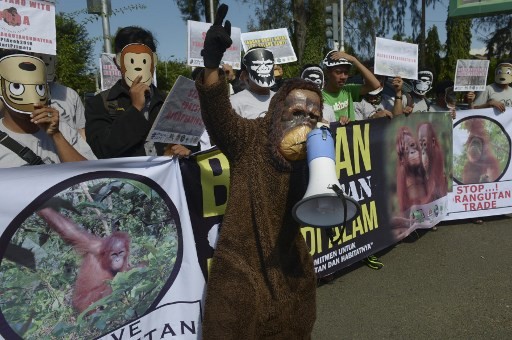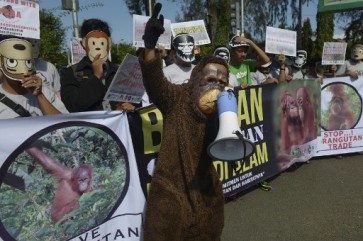Popular Reads
Top Results
Can't find what you're looking for?
View all search resultsPopular Reads
Top Results
Can't find what you're looking for?
View all search resultsWhy corruption could derail Indonesia’s climate fight
Climate adaptation often involves infrastructure projects, such as earthquake or flood mitigation efforts, which are particularly vulnerable to corruption.
Change text size
Gift Premium Articles
to Anyone
T
he global focus on the climate crisis has intensified, particularly with the United Nations holding the annual climate change conference (COP29) in the Azerbaijan capital of Baku. However, COP29, like many prior COPs, has failed to adequately address the intersection of corruption and the climate crisis, or to explicitly recognize the dangers posed by their combination.
The absence of discourse on this intersection during the conferences has resulted in a paucity of follow-up discussions. This represents a missed opportunity, as such discussions are crucial for achieving more effective climate action outcomes.
To gain a deeper comprehension of the matter, one needs to discern the two distinct forms of corruption that are intertwined with the climate crisis. The first type of corruption is criminal in nature, which is governed under Anti-Corruption Law No. 19/2019. This encompasses illicit acts of corruption.
The second type of corruption is state capture, which refers to the domination of public policy and institutions by powerful private interests.
Criminal corruption has contributed to the worsening climate crisis. Numerous cases related to the extractive industries, such as mining, have facilitated the continued use of coal and coal-fired power plants while leading to the destruction of carbon-absorbing forests.
For instance, in 2024, the South Sumatra High Prosecutor's Office handled an illegal coal mining case causing potential state losses of Rp 488 billion (US$31 million). In 2018, the Corruption Eradication Commission (KPK) investigated bribery related to the Riau-1 coal-fired power plant involving high-ranking officials and businesspeople. In 2023, the Supreme Court found conglomerate Surya Darmadi guilty of corruption related to the conversion of forests into palm oil plantations.
Corruption is also known to have obstructed climate adaptation and mitigation efforts. Budget embezzlement or irregularities in procurement of goods and services undermine the effectiveness of these initiatives. It is important to note that large budgets are particularly vulnerable to corruption. From 2018 to 2021, the government allocated a climate change budget of Rp 418.59 trillion, with actual expenditures amounting to only Rp 365.42 trillion.



















